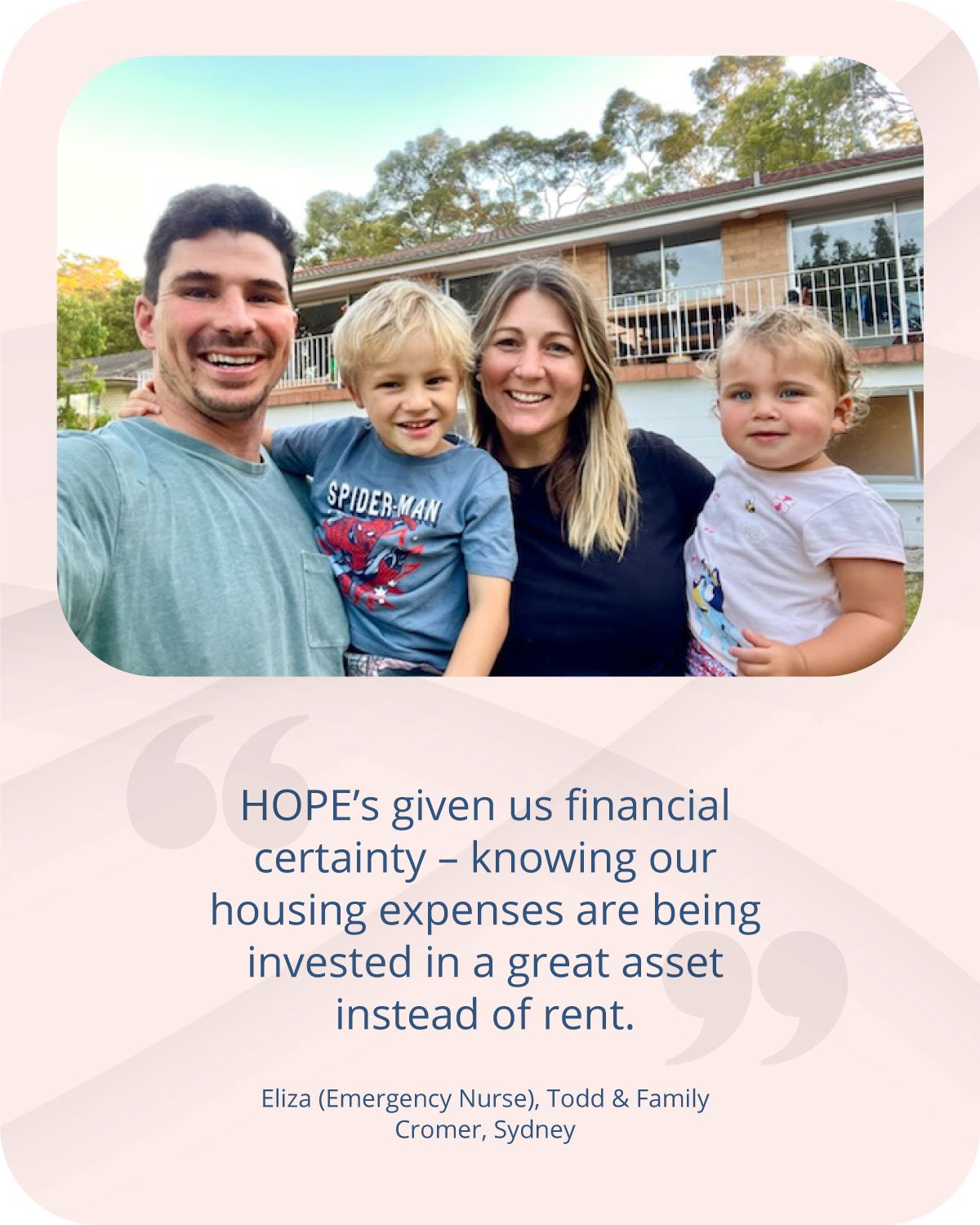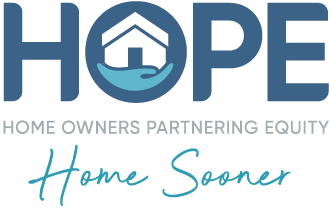Shared equity represents a new era in property investing that goes beyond the traditional binary of full ownership or renting. It provides a mutually beneficial structure for investors and homeowners to build equity and wealth in real estate. By eliminating the typical costs associated with property investment, shared equity allows investors to maximize their returns while offering homeowners a more affordable way to own their homes.
Investing in innovating homeownership
Generate attractive returns alongside homeowners by investing in investment-grade residential properties through a shared equity structure.
10% p.a. Target Return
(net of fees and expenses, before tax)
HOW
The fund enhances the underlying 4 – 6% p.a. growth forecast of the Australian property market* using low-cost, fund-level gearing of up to 65%.
*Bis Oxford Economics
No land tax, stamp duty or property maintenance costs for investors
HOW
Homeowners are on title, with the fund securing its interest through a registered charge. Homeowners benefit from 100% occupancy of the property and are responsible for 100% of the transaction costs and ongoing property maintenance and expenses.
Portfolio diversification benefits
HOW
Residential housing provides diversification benefits when funded by reduced allocations to shares and bonds. It fulfils the function of Alternatives in providing a non-conventionally sourced positive contribution to enhanced overall portfolio outcomes. ***Learn more***.
Low 0.5% p.a. management fee, capped based on cost-recovery
HOW
Fund 1 management fees will never exceed 0.5% p.a. of the market value of the total capital invested in investments of the fund. No performance fee is payable to the manager. Learn more.
Capital growth and buyouts generate returns to investors
HOW
Capital returns are distributed no less than quarterly, with liquidity driven by homeowner equity purchases (at market value), refinance and sale events, and secondary market unit sales.***Learn more***.
Why shared equity
Why essential workers?
Essential workers are in high demand, enjoy stable employment and are a critical support and enablement pillar of the broader workforce. The benefits of essential workers owning homes in the communities they serve has been demonstrated to create 30c of additional economic value for every $1 invested in shared equity. Learn more.
How it works?
HOPE
for everyday heroes
Minimum Investment
Set by the Trustee in its discretion, in consultation with the Manager
Target Return
10% p.a. Fund IRR (net of Management Fees and other Fund expenses, before tax)
Distribution
Quarterly
Term
Ten years
Fund Type
Unregistered managed investment scheme
Investor Eligibility
Wholesale only
Target Fund Size
$100 million
Classes of Units
The fun will apply for an AMIT structure
Management Fee
0.5% p.a. of Fund I committed capital
Our Investor Partners
Our partners include Super Funds, Family Office Investors and philanthropic ventures. HOPE investors are looking to make a meaningful impact and achieve a measurable social return. Investment in HOPE provides a real asset-backed portfolio with strong commercial returns.
Frequently Asked Questions
Aside from the capital gains on the sale, how will investors make money?
Capital gains are realised by investors when one of two events occur:
- Sale of the property; or
- When the homeowner buys out part or all of the HOPE share. In this case the price they pay for a greater equity stake will be determined by the current market price of the property.
What are the returns projected to be and given your non-profit status how will returns be distributed?
We are targeting 10 per cent per annum (net of management fees and other fund expenses, before tax). The HOPE corporate entity is not for profit meaning that management fees will be charged on a cost recovery basis. The Fund itself will realise a competitive and commercial return to investors distributed on a quarterly basis.
How is HOPE funded?
Funded by private philanthropic investment, HOPE is a Not for Profit entity, unregistered managed investment scheme. HOPE Fund I is now open to investors, the minimum capital investment is $1 million. The target fund size is $400 million.
What properties will be eligible: strata units, freehold dwellings, new builds, old builds?
HOPE will provide capital for all types of housing except for off the plan developments.
Does the Homeowner pick up expenses like rates, utilities, strata fees and property insurances?
The homeowner and HOPE are not tenants in common. The homeowner is on title as sole owner of the property. As owner of the property they are responsible for all the normal outgoings: rates, utilities, strata fees and property insurances.
Is this solving anything or merely a nice sounding idea with little real-world application or merit?
The Centre for Social Impact at UNSW has helped us to develop a system to measure the social impact our new housing solution will have on individuals, employers and our communities. Enabling essential workers to live close to their place of work reduces travel time and improves work/life balance and physical and mental health. This in turn increases work productivity and decreases absenteeism. It’s all about strengthening our communities.
THE FINE PRINT
#Target returns only. Investment returns are subject to risk and are based on assumptions. Actual returns may differ and are not guaranteed. Investments will be available to wholesale investors only on terms to be described (including risks) in a private placement memorandum available on request from HOPE.
* Refer HOPE Housing Benefit and Costs Forecast - UNSW Centre for Social Impact, May 2021 The Problem – Affordability




